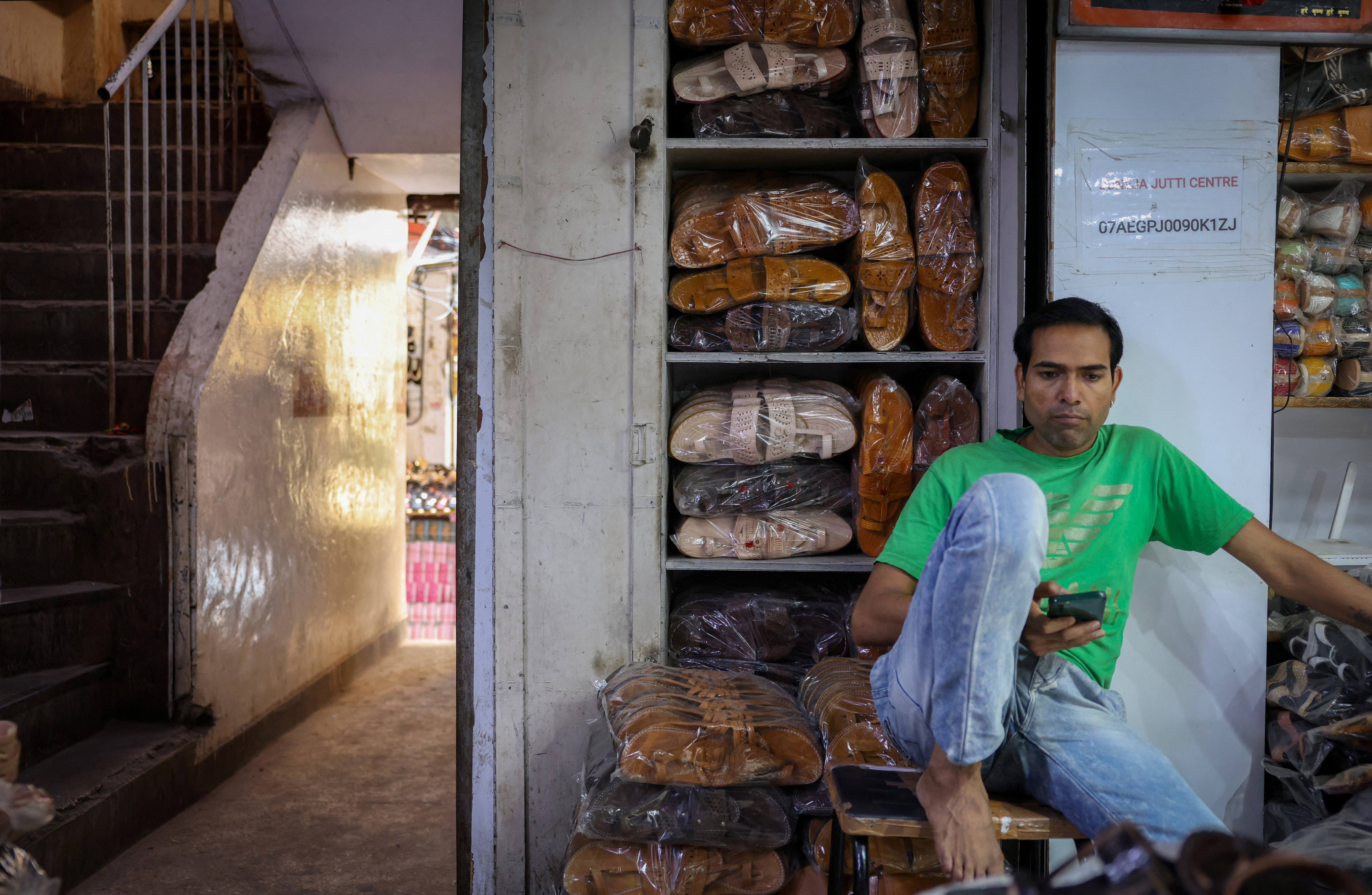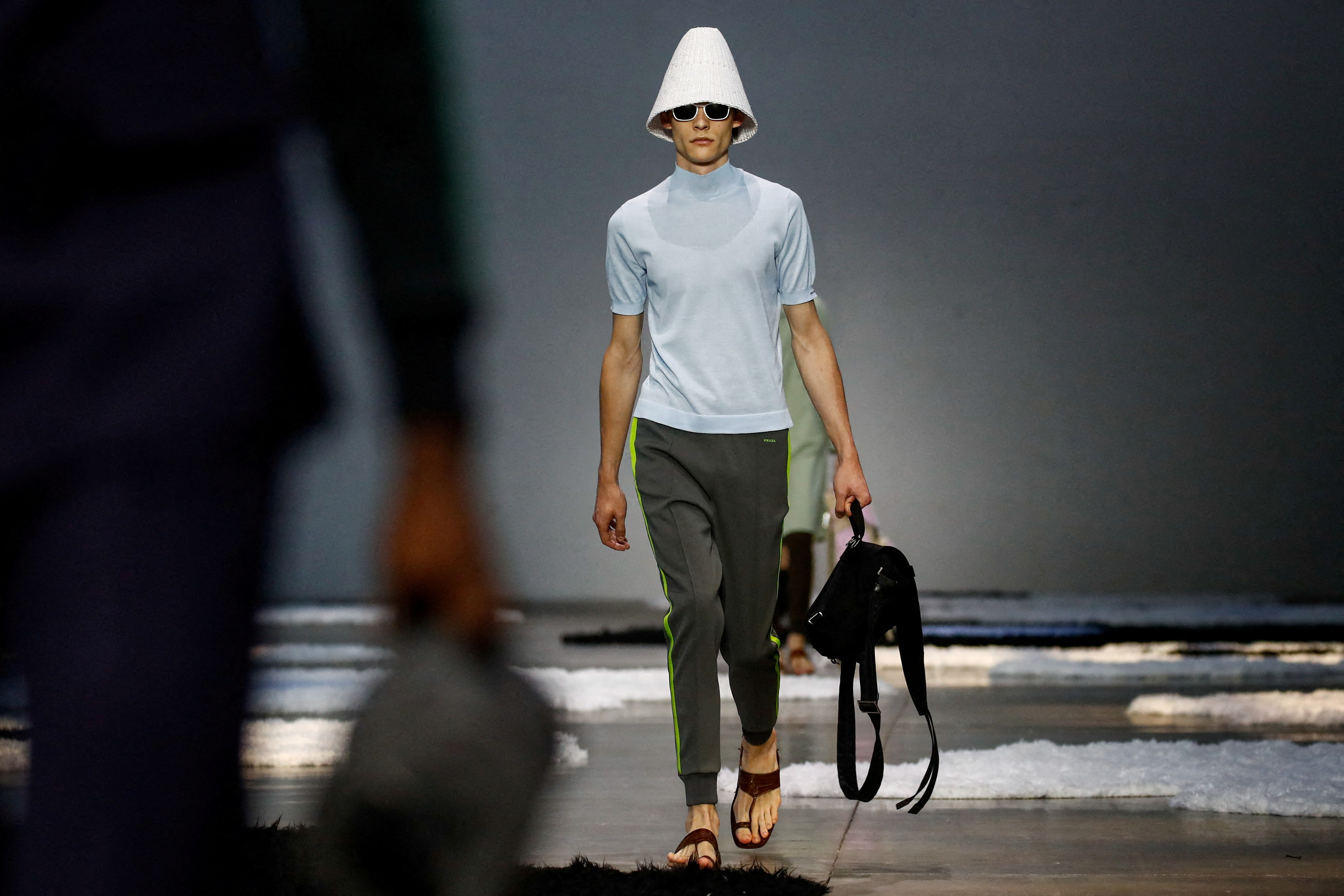After Prada ‘sandal scandal’, Indian brands tap heritage pride to boost sales
By Dhwani Pandya, Arpan Chaturvedi and Elisa Anzolin
Indian footwear sellers and artisans are tapping into nationalist pride stoked by the Prada ‘sandal scandal’ in a bid to boost sales of ethnic slippers with history dating back to the 12th century, raising hopes of reviving a struggling craft.
Sales have surged over the past week for the Kolhapuri sandals that have garnered global attention after Prada sparked a controversy by showcasing similar designs in Milan, without initially crediting the footwear’s origins.
After viral photos from a fashion show drew criticism from Indian artisans who make the sandals – named after a historic city in Maharashtra state – Prada was forced to acknowledge that its new open-toe footwear was inspired by ancient Indian designs.
Lorenzo Bertelli, son of Prada’s owners, responded to the sandal scandal in a letter to a trade group recognising their Indian heritage.
“We acknowledge that the sandals… are inspired by traditional Indian handcrafted footwear, with a centuries-old heritage,” Bertelli, Prada’s head of corporate social responsibility, wrote in the letter to the Maharashtra Chamber of Commerce, seen by Reuters.
The sandals are at an early stage of design and it is not certain they will be commercialised, but Prada is open to a “dialogue for meaningful exchange with local Indian artisans” and will arrange follow-up meetings, he wrote.

Sambhaji Chhatrapati from the Kolhapur Royal family told Reuters by phone he was upset that craftsmen had not been acknowledged for the “history and heritage of 150 years.”
Indian culture and crafts are increasingly finding their way into global brand designs. High-end jeweller Bulgari offers a $16,000 Mangalsutra necklace inspired by a chain traditionally worn by married women.
‘Prada 0: Kolhapur 1,’ said an Instagram post by e-commerce website Shopkop, whose founder Rahul Parasu Kamble’s open letter to Prada pointing out the footwear is “soaked in tradition” was reshared 36,000 times on social media.
“I saw the controversy as a way to promote Kolhapuri,” said Kamble, 33, who has seen sales of sandals he sources from local artisans touch 50,000 rupees ($584) in three days, five times the average.
Social media has been abuzz in recent days with criticism and sarcastic memes, with politicians, artisans and a trade body demanding due credit to Indian heritage.
Prada 1913.F has said it will arrange follow-up meetings with artisans. In a statement to Reuters on Tuesday, it added the Italian group intends to make the sandals in India in collaboration with local manufacturers, if it commercialises them.
India’s luxury market is small but growing, with the rich splurging on Lamborghini cars and pricey watches. Prada does not have a single retail store in India and its products are usually reserved for the super rich – its men’s leather sandals start retailing at $844, while Kolhapuris can be priced as low as $12.
But linking of the Prada name to the Kolhapuri sandals, which are made by around 7,000 artisans, is providing a business opportunity for some.
Mumbai-based Ira Soles is running new Facebook and Instagram advertisements which proclaim its $32 “Tan Handcrafted Kolhapuris just walked the ramp at Prada … Limited stock. Global spotlight. Own a piece of what the world is applauding.”.
E-commerce website Niira is offering up to 50 per cent discounts on its Kolhapuri slippers it says are “rooted in tradition”. Its sales of $18 sandals, that looked like the one Prada showcased in Milan, have tripled, founder Nishant Raut said.
“Why can’t an Indian Kolhapuri brand become as big as a Birkenstock?” he asked.
Handmade in small factories, Kolhapuri sandals, or chappals as they are called in Hindi, are often paired with Indian attire. Similar designs are sold in big outlets of Bata India and Metro Brands, and also on Amazon and Walmart’s Flipkart.
In 2021, India’s government said the sandals could achieve $1 billion a year in exports. Though latest estimates are not available, artisans say the business has struggled as consumers increasingly opt for more fashionable, upmarket footwear.
Still, the Prada controversy is breathing new life into a craft that Lalit Gandhi, president of Maharashtra’s main industry lobby group, says is “a dying art”. Gandhi said he is in talks with Prada to develop a co-branded, limited-edition sandal.
Kolhapur craftsmen Ashok Doiphode, 50, is pinning hopes on a Prada boost. He hand-stitches sandals for nine hours daily but can sell a pair for just 400 rupees ($5).
“If big companies like Prada come, craftsman like me can get a good price.”
Kolhapur-based businessman Dileep More, however, said images of the Prada sandal were bringing cheer to some artisans as they show their traditional product going global.
“They are happy that someone is recognising their work,” he said.






Click here to change your cookie preferences